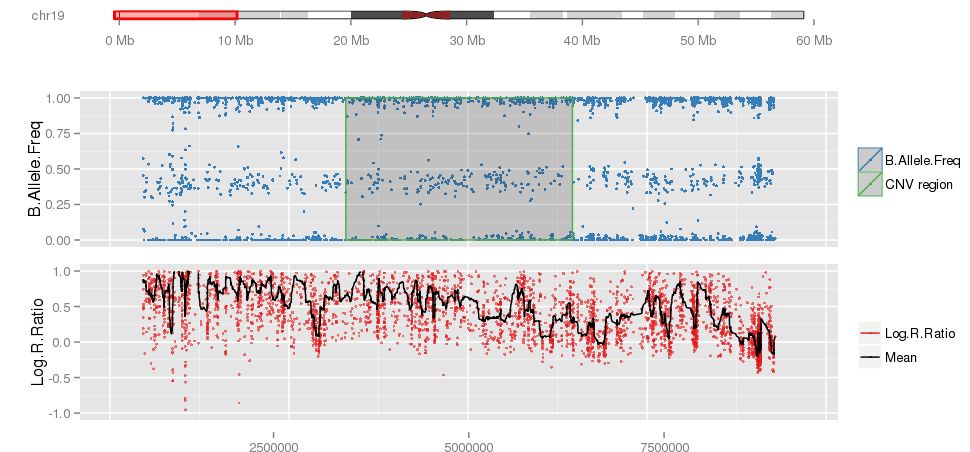
Amplified DNA from dried blood spots offers number of challenges for copy number of variation detection. Here we describe some of the challenges one can find working with DBS data.
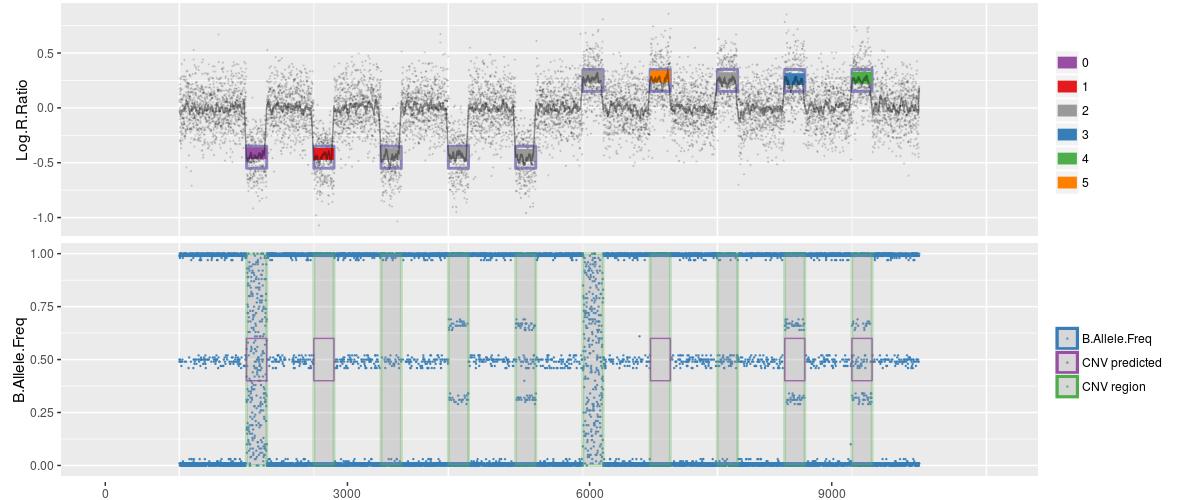

Amplified DNA from dried blood spots offers number of challenges for copy number of variation detection. Here we describe some of the challenges one can find working with DBS data.
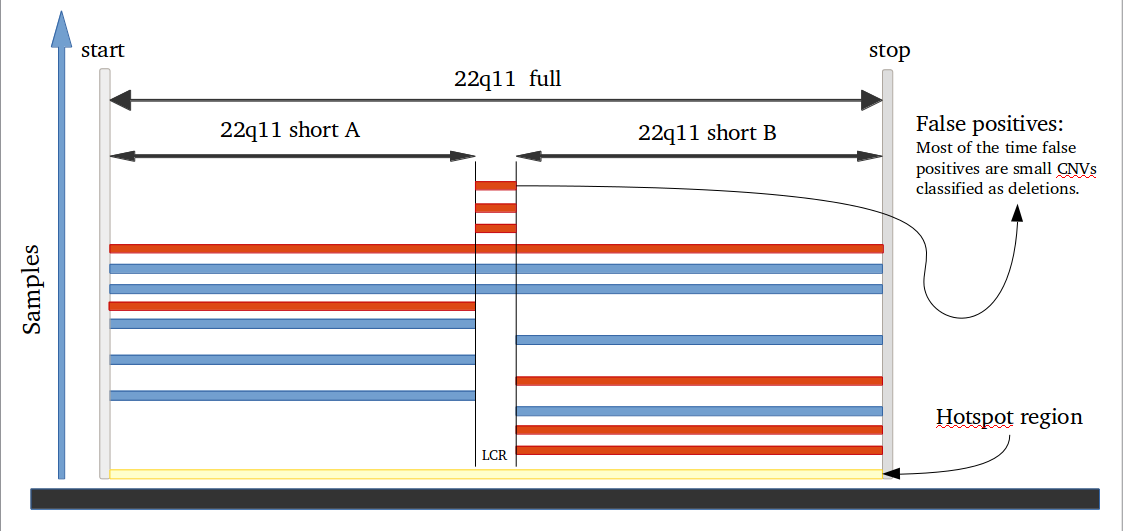
iPsychCNV package offers a series of tools that can be used in the CNV prediction pipeline, but also independent with other programs.

Evaluation of CNV prediction performance is an important step for methods comparison. Here we describe how binary classification is used to evaluate the method performance.
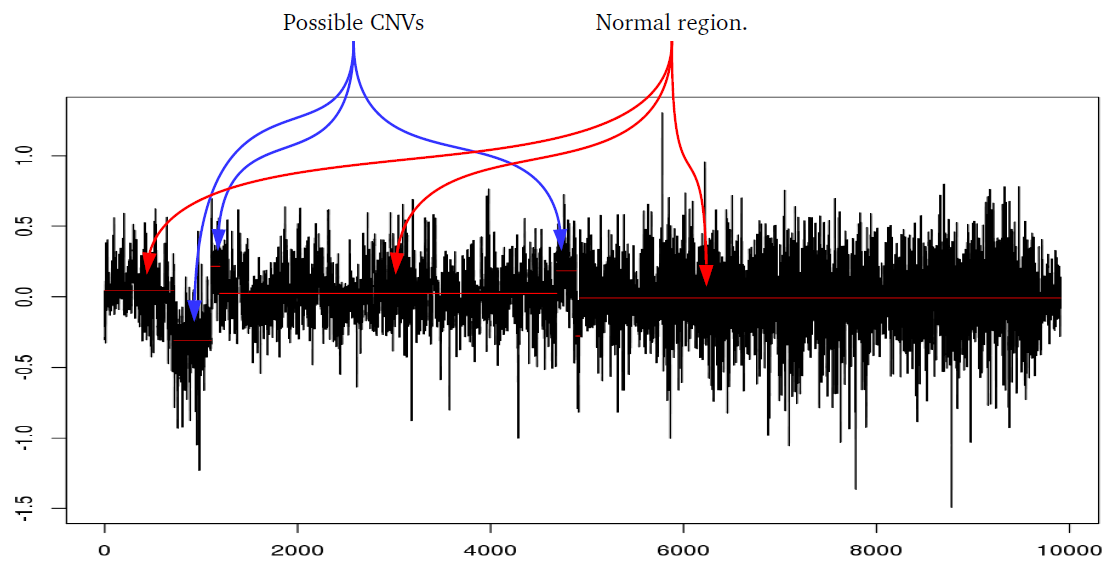
iPsychCNV uses many different methods to perform a series of functions. Here we describe in detail the methods used by iPsychCNV.
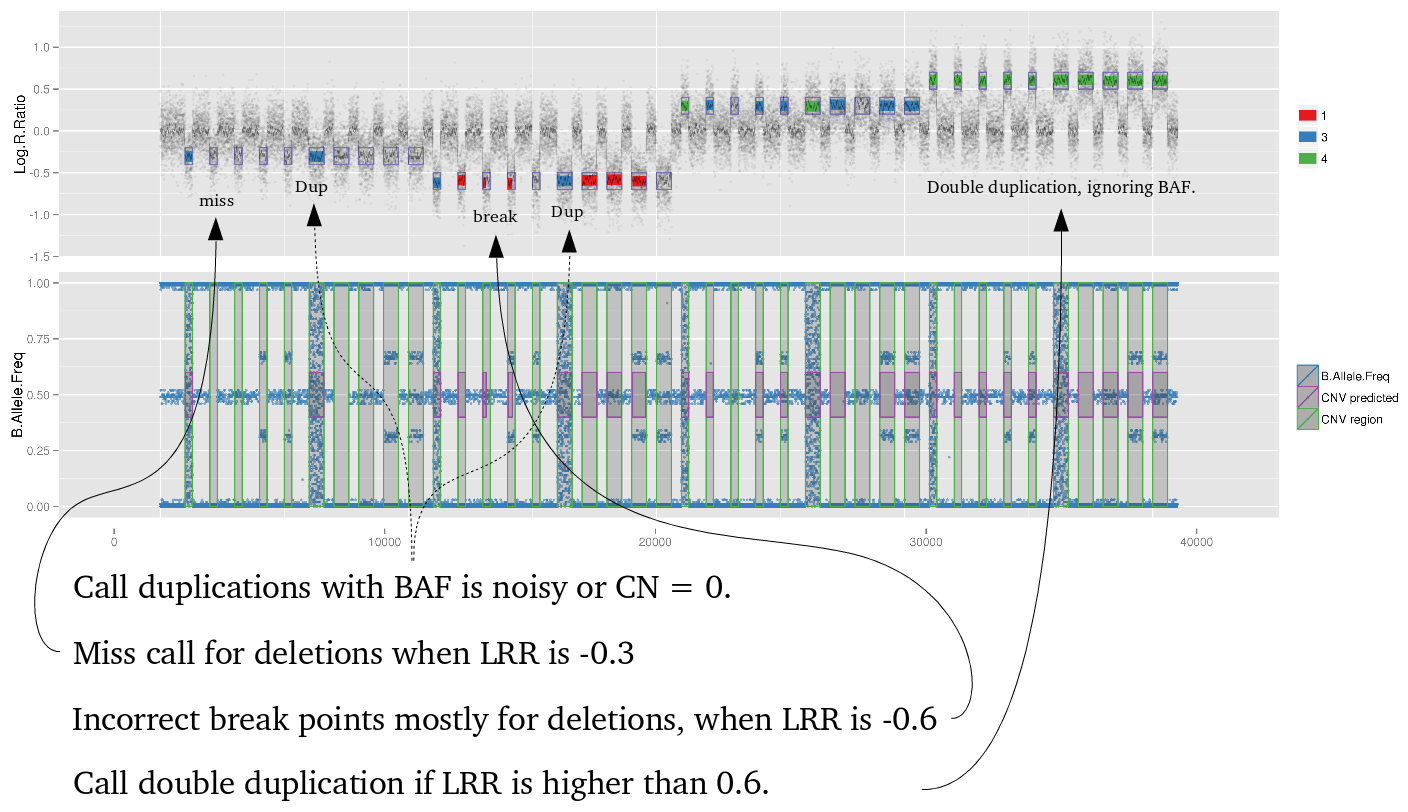

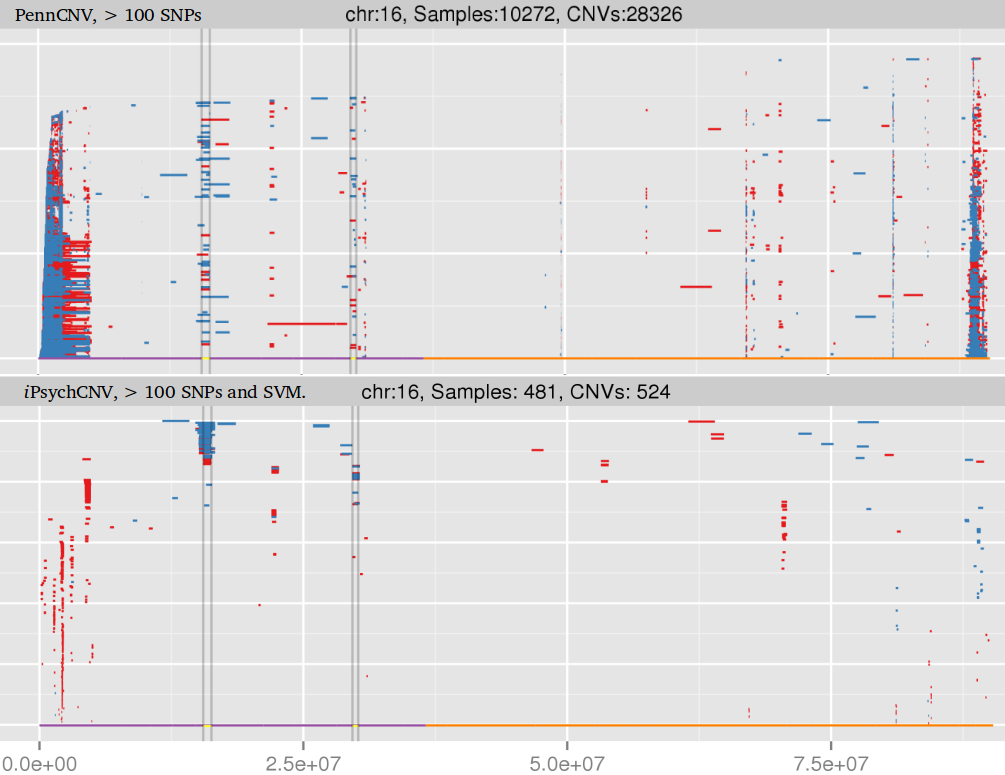
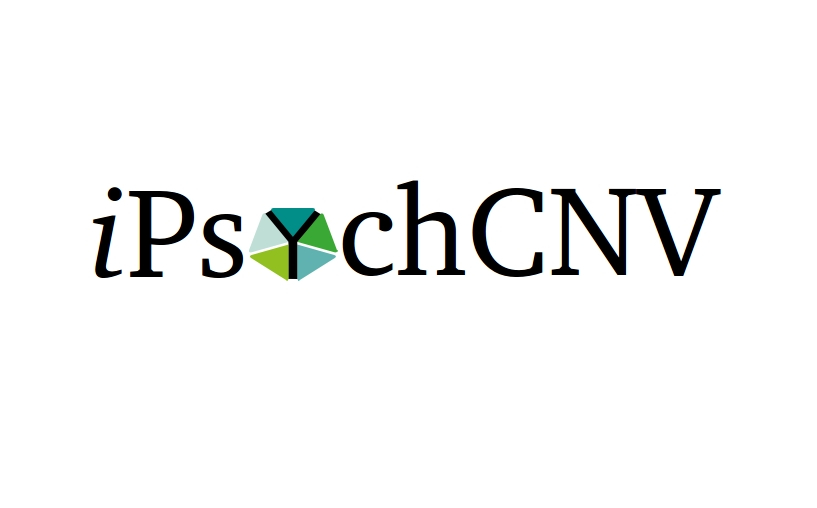
iPsychCNV is an R packaged, designed to find copy number variation Illumina SNP array from dried blood spots (DBS). It is designed to handle large standard deviation from on Log R ratio (LRR) present in DBS samples. The robust methods is capable to deal with problems that are also present in blood samples. For instance, drop in LRR signal at telomeric regions. The method uses B allele frequency to improve CNV calls and reduce number of false positive CNV predicted.

iPsychCNV is available on Github for download and development. It is an open source R package project and people are welcome to contribute with suggestions, programming new functions and/or improve existing ones. The source code is available at Github for installation, usage and development.

The project will study five specific mental disorders; autism, ADHD, schizophrenia, bipolar disorder and depression. All disorders are associated with major human and societal costs all over the world. The iPSYCH project will study these disorders from many different angles, ranging from genes and cells to population studies, from fetus to adult, from cause to symptoms of the disorder, and this knowledge will be combined in new ways across scientific fields, visit iPSYCH.